
Why Hong Kong must act fast in post-Covid-19 world to regain place as international talent hub
- City needs to entice well-qualified entrepreneurs and innovators who can drive greener economic growth in Greater Bay Area, members of Better Hong Kong Foundation say
- Alice Au and Bryant Lu, council members of the non-profit think tank, believe better job opportunities, work culture and education can also halt exodus of local talent
[Sponsored article]
As Hong Kong and the rest of the world emerges from nearly three years of lockdowns, social distancing and travel restrictions during the deadly Covid-19 pandemic, there are many positive signs of the city’s revival as things start to return to normal.
About 1,000 influential finance leaders took part in the annual banking conference organised by the Hong Kong Institute of Bankers in September last year, while the following month the Vienna Philharmonic Orchestra was in town for two sold-out performances to help celebrate the 25th anniversary of the establishment of the Hong Kong Special Administrative Region.

The world-renowned Hong Kong Sevens returned after a two-year hiatus in November, with more than 20,000 rugby sevens fans turning up on each of the three days of competition. International golfing events are also returning to the city, with the Asian Tour scheduled to stage a new event from March 23 to 26 at Hong Kong Golf Club.
Although things appear to be picking up, underlying issues caused by the pandemic still remain. They will take time to resolve before Hong Kong’s businesses re-establish themselves and the city bounces back and regains its status as an international talent hub.
Two leading Hong Kong business figures, Alice Au and Bryant Lu, believe it is vital for the city to act quickly so it can adapt and provide the necessary talent to serve the needs of local companies and the fast-evolving global economy.
Au and Lu are both council members of the Better Hong Kong Foundation (BHKF), a privately funded, non-profit organisation formed by local business and community leaders to help promote the city’s long-term development.
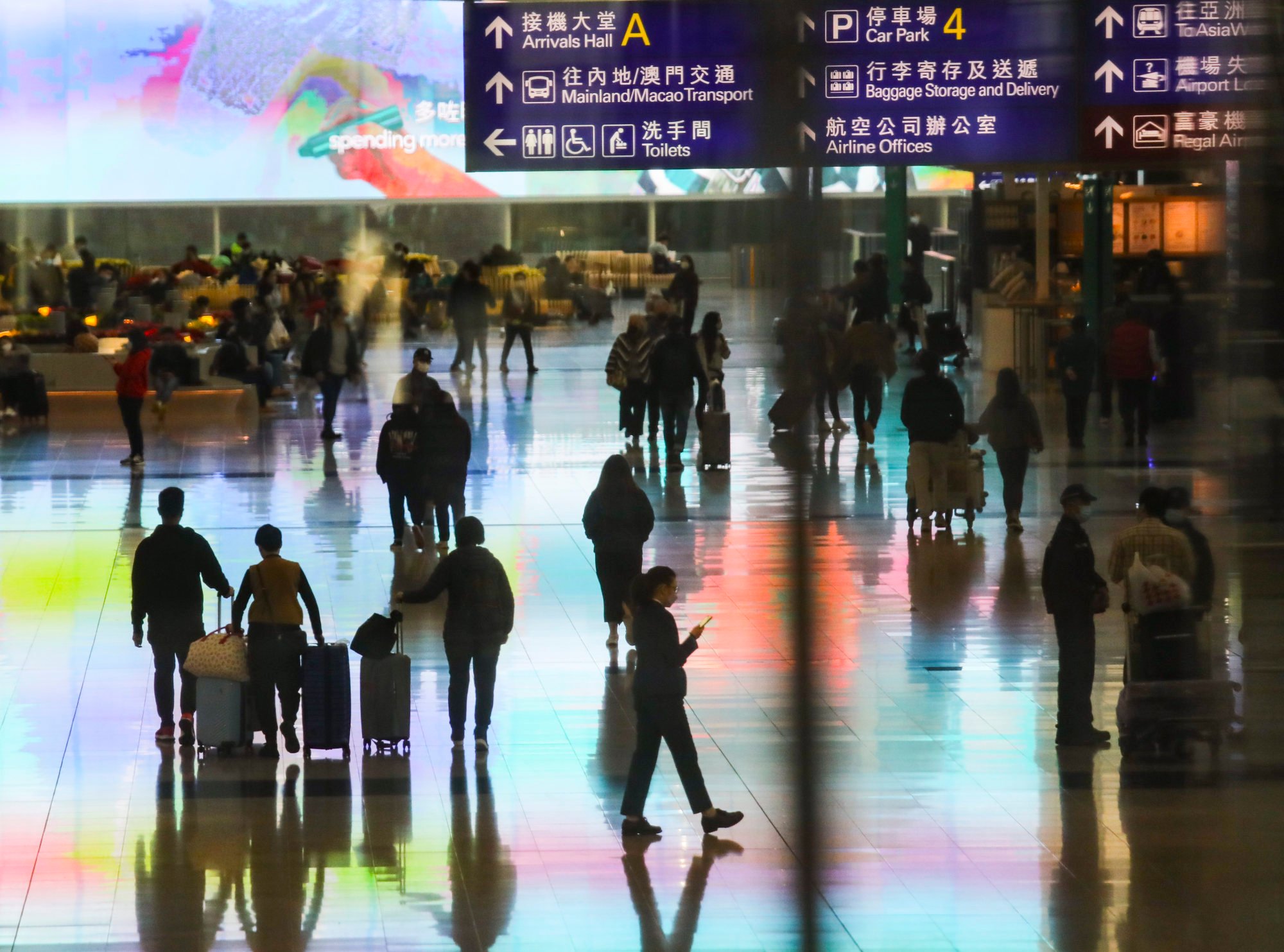
As a partner at executive search and leadership consultancy Spencer Stuart, Au sits on the global board of the firm, and is also the co-lead of its board and CEO practice in Asia-Pacific. For nearly 30 years she has been helping to bring in international talent and develop local talent – primarily among C-suite, or senior, executives – across industries in the city.
Lu, vice-chairman of award-winning architectural design firm Ronald Lu & Partners, is an advocate for sustainable, human-centric and future-ready designs that connect the community and honour local culture and heritage. He is also vice-president of the Hong Kong Institute of Architects.
They acknowledge that policymakers and planners looking to restore the city’s talent hub face many challenges. These include the need to attract well-qualified entrepreneurs and innovators who can drive greener economic growth, capture new opportunities in the Guangdong-Hong Kong-Macau Greater Bay Area development zone, and take tech start-ups with potential from initial concept to getting listed.
Au and Lu also believe it is important to stop the existing talent outflow by creating more job opportunities, and a better work culture and support for existing talent such as education and medical support.
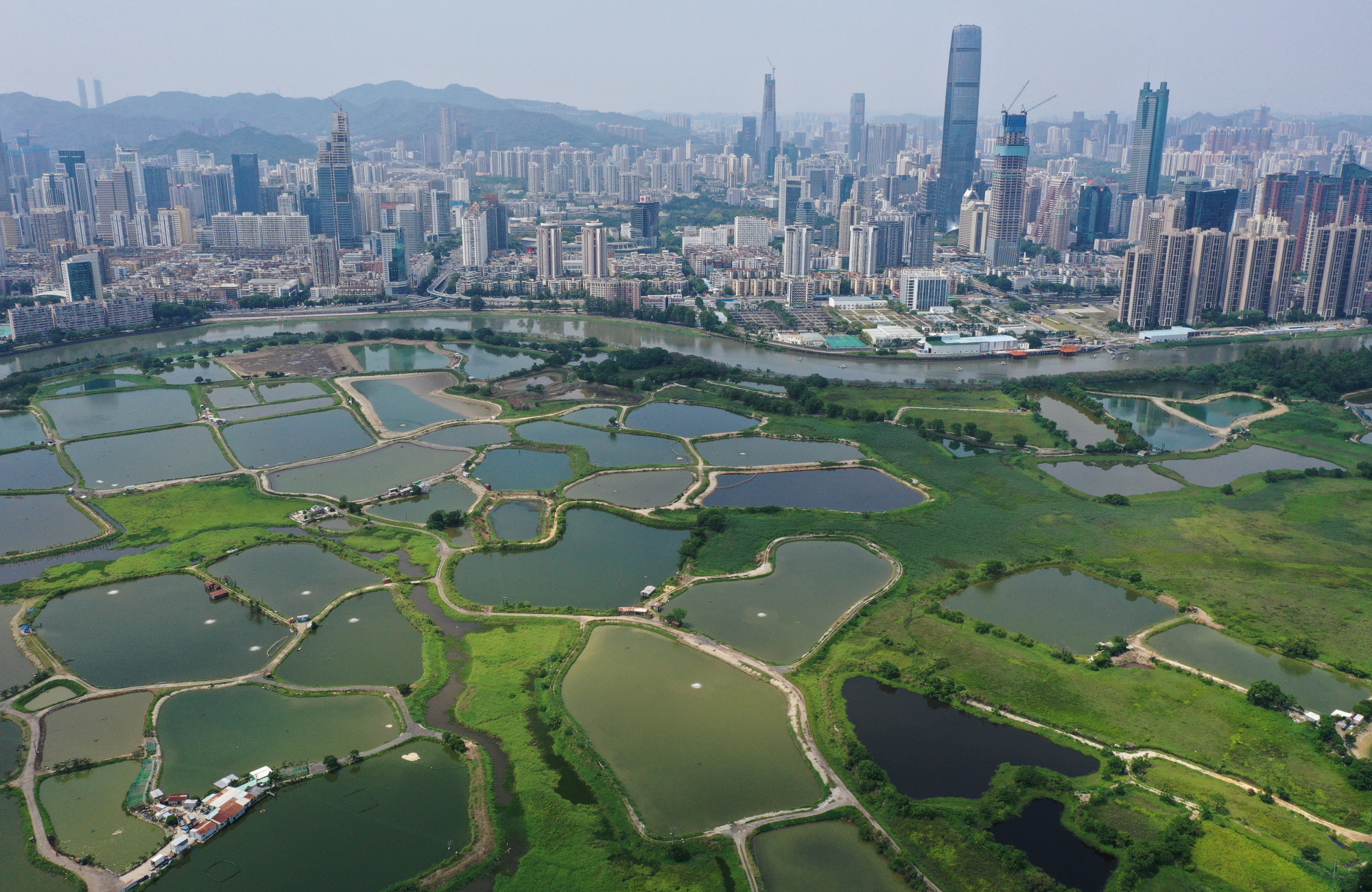
Policymakers and planners also must find ambitious managers and corporate leaders with the skills to run businesses and oversee transformation – as well as locally trained technicians and specialists, who form the backbone of every industry.
Yet achieving this will be no small feat, even though Covid-related travel restrictions and social-distancing rules have been lifted, apart from self-arranged rapid antigen tests and the continued wearing of face masks.
However, to restore confidence in business recruitment, there must now be greater understanding about what talented workers at different stages in their careers are looking for – and why.
In his policy address last October, Hong Kong Chief Executive John Lee Ka-chiu admitted that an emigration wave had seen the city’s workforce shrink by about 140,000 over the past two years.
“It’s great that [he] acknowledged that; I think that is the first step,” Au says. “Is there a huge brain drain? I wouldn’t say so, but it is material enough to shake the city’s reputation as a talent hub.
“There are definitely expats leaving, mostly because of the strict covid restrictions in the past. There are locals leaving for immigration reasons, to get their kids in overseas schools, get another passport, et cetera. We need to stop that.”
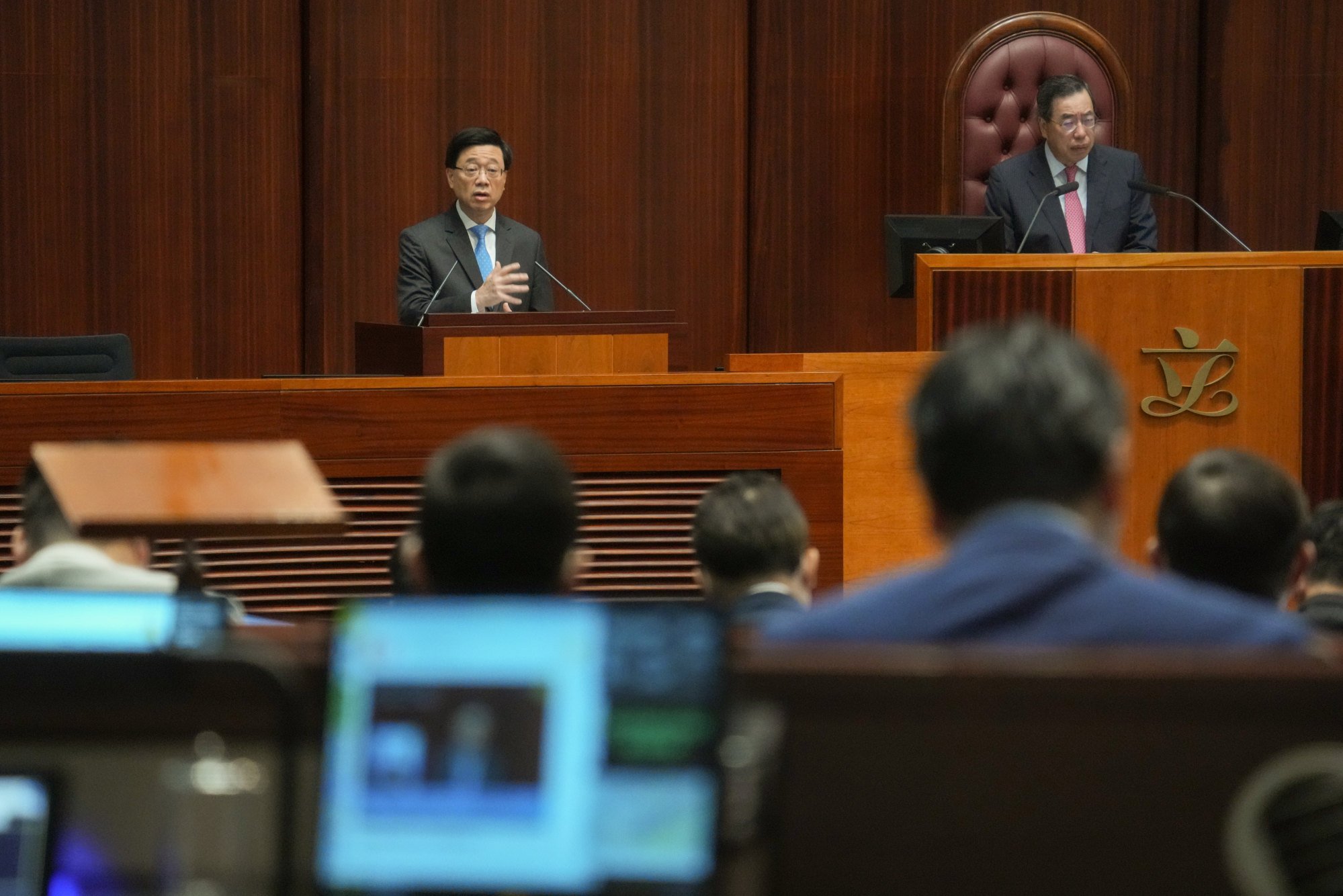
She says it is important to take steps to attract top talent from around the world. Measures already outlined in the policy address include the launch of a “Top Talent Pass Scheme” to attract individuals who have graduated from one of the world’s top 100 universities, received an annual salary equivalent to HK$2.5 million (US$320,000) or more in the past year, and have three years of work experience over the last five years.
This scheme aims to recruit at least 35,000 eligible people from overseas each year from 2023 to 2025. Dedicated teams in government offices in the mainland and elsewhere will liaise with top universities to promote the possibilities.
At the same time, an Office for Attracting Strategic Enterprises will be opened to persuade leading companies, particularly those working in fields such as financial technology and data science, to set up operations in the city, through enticements such as tax incentives.
However, Au and Lu stress that these initiatives alone are not enough – it is also important to address the reasons for the loss of many young Hongkongers from the workforce.
Au says: “To re-establish the city as a talent hub and expand its pool of skilled workers, the city must build an ecosystem.
“Five of Hong Kong’s universities rank among the world’s top 100. On one hand, we must enable the graduates of these highly regarded universities to thrive and, on the other, help those not afforded the opportunity to attend these leading academic institutions to have meaningful careers to support the city’s growth.”
She says any comprehensive plan should start by identifying strategic sectors or industries for Hong Kong, and the subsequent talent or manpower gap. It is also important to be aware of the next generation’s changing attitudes and aspirations towards work and careers and take them into account when recruiting them.
“Given how fast the world is moving, serious questions need to be asked about whether Hong Kong’s education system is preparing the type of talent most coveted by employers – those people who are digitally and data savvy, have strong language skills, resilience and creativity, and can think ‘outside the box’,” she says.
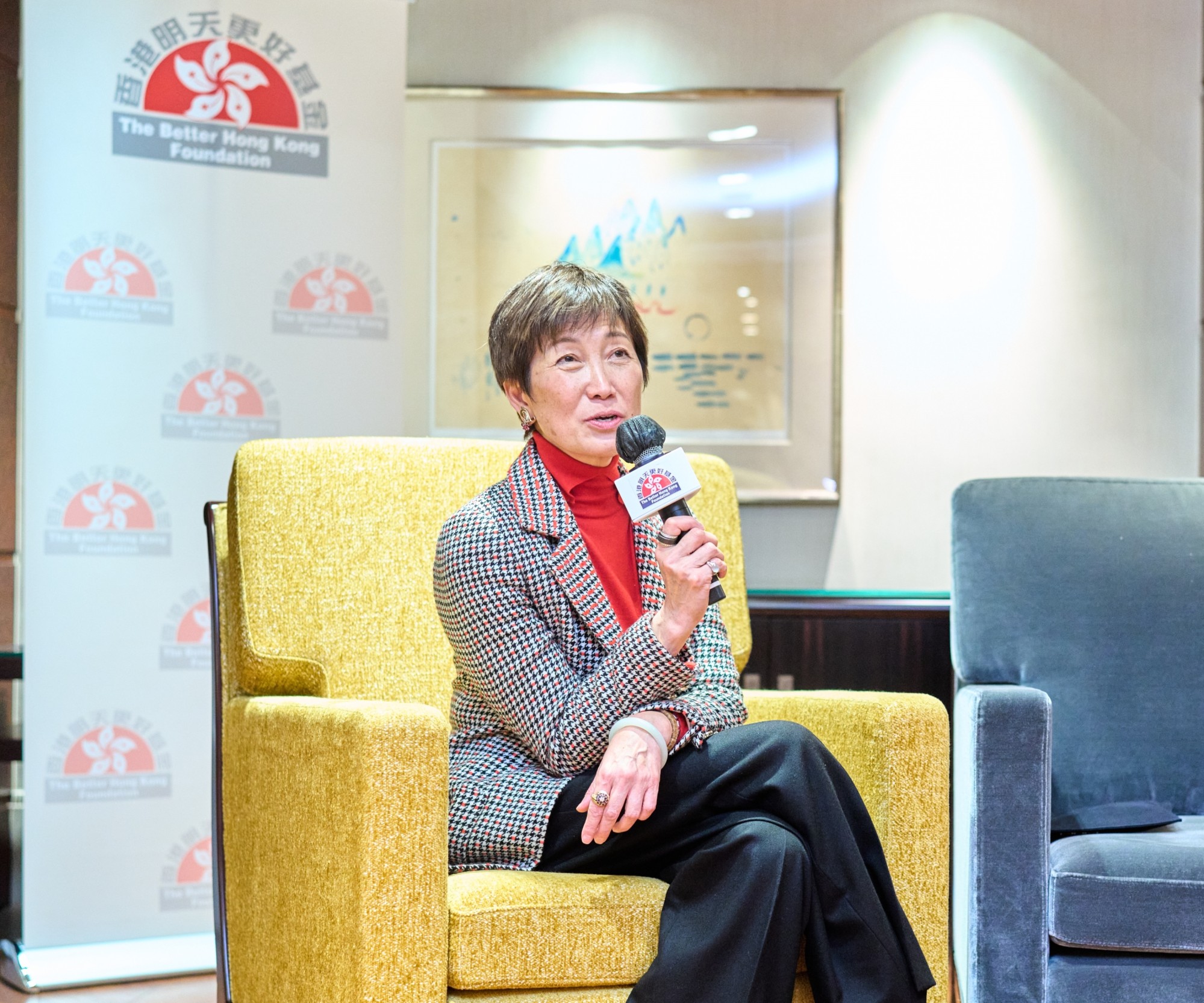
Au and Lu believe Hong Kong is steadily regaining momentum, but to ensure it maximises its opportunities, it must establish a work culture which motivates millennials.
Other than pay, younger workers also look at other factors such as environmental, social and governance, or ESG, which serves as a framework for companies to support responsible practices. Diversity, equity and inclusive policies can make a big difference, Au and Lu say.
“I think every generation has its own vibe and we have to go along with it,” says Lu, who has forged an impressive track record in design, management and business development over the past 20-plus years.
“Regarding millennials, they are looking for purposeful, meaningful work and want to know how they fit into the bigger picture. Also, a sense of self-worth and the search for personal identity are quite big themes in the millennial mindset. They want to know where the company is going, so employers have to recognise that and let them see how they are contributing.”
Au says Hong Kong can achieve its goal of regaining its position as a global talent hub. But it will succeed only if policymakers fully appreciate that, in the post-pandemic world, the aims of the “average worker” – regardless of how senior, skilled and well remunerated they are – will not be the same as before.
Most people have undergone some form of life-changing experience during the course of the Covid-19 outbreak, which has caused them to reevaluate their work-life priorities. They still want to succeed, but it is now more important to do it on their own terms, rather than simply climbing the corporate ladder, securing a plum transfer, negotiating a bigger year-end bonus, or being the last to leave the office.
“It doesn’t work like that anymore,” says Au, who began her career as a semiconductor engineer. “People want to have an impact on something more than just shareholder returns.
“They see what’s happening in society and with the climate change situation, and they are more focused on the impact of their work, as well as their own learning and development.”
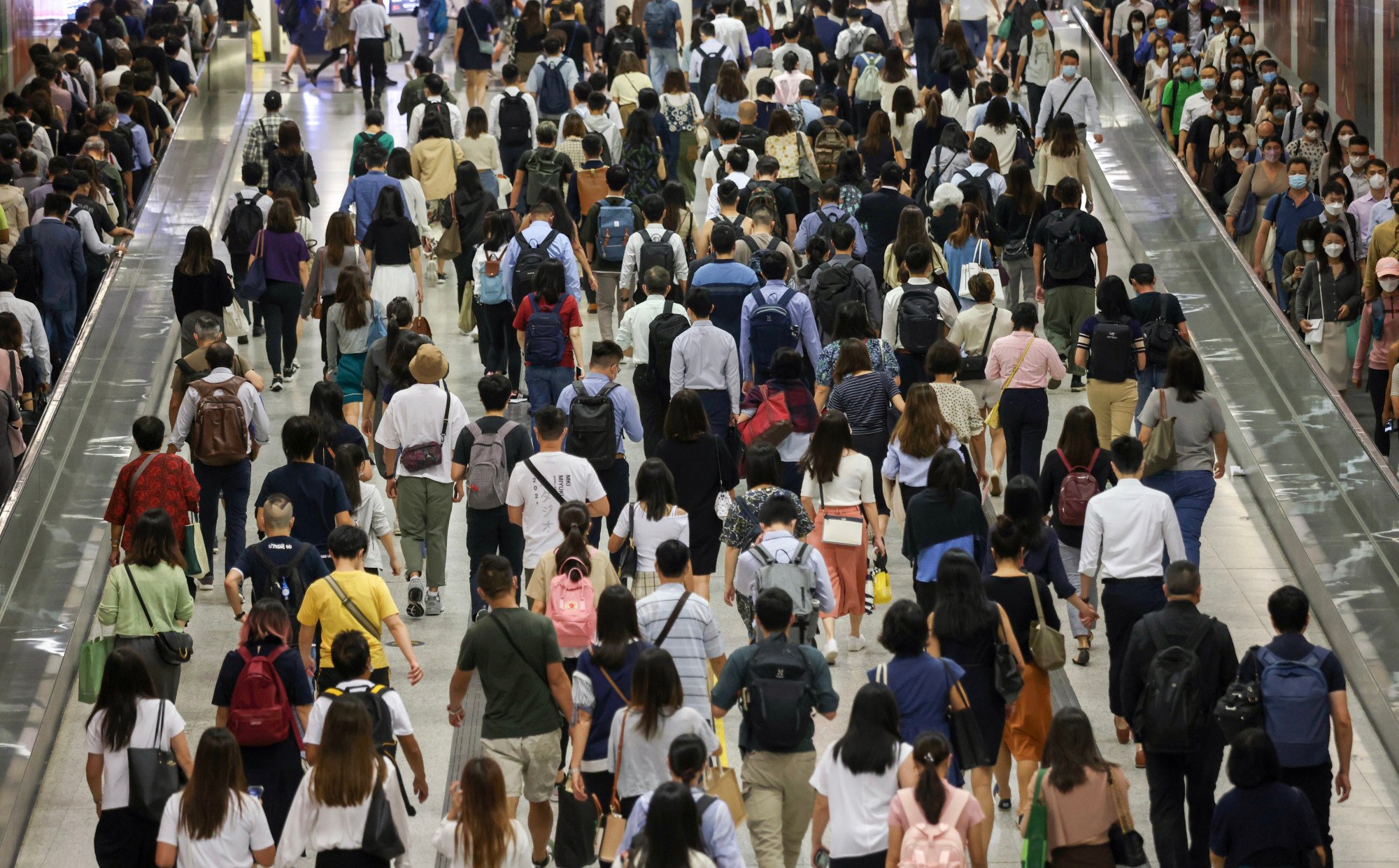
She believes most of Hong Kong’s workforce still has the city’s famous can-do attitude. This bodes well for the current transition and for the prospects of attracting large-scale inward investment to back new ventures and nascent industries.
“But you need to understand what people are expecting out of the employer-employee relationship,” Au says. “To retain talent, regardless of their age, one needs to be more empathetic around what motivates them, articulate purpose, provide guidance and help them develop.”
Lu says that apart from international-friendly businesses, such as finance, there are sectors that are “extremely local”, including the property and construction industry, which has suffered significant exodus of talent.
“One example of the unique working environment of the industry is that at all meetings, everyone speaks Cantonese, writes in English, and must know about Hong Kong rules, regulations and culture,” he says. “Such an environment will prove challenging for overseas or mainland talent.”
For that reason, it is vital to ensure the local education system produces enough graduates who are equipped to play their part in sectors that require local knowledge, Lu says. That is the key to creating a reliable talent pipeline – and breaking away from the “business as usual” mindset often found in official circles, which slows progress and stifles innovation.
“Given the workforce shortages, I think the challenge right now is to find ways to get things done quicker, with fewer procedures and policies, signatures and approvals,” he says.
“Any new policy and procedures will require more people on both sides to monitor the process. This leads to more people doing the supervision than doing the actual work and, as result, the more time, higher costs and lower quality of the work. That just drags down the efficiency of Hong Kong. In the end, everybody loses.”
To be effective in attracting and retaining talent, Au stresses the importance of studying industry-specific situations. There should be well-defined approaches and clear targets to develop Hong Kong’s own human capital – the economic value of a person’s skills and experience – especially for the new pillar industries, to avoid an over-reliance on importing employees.
“You need to develop your own workforce, put resources into that and, at the same time, bring in outside talent where essential,” she says, noting, as an example, how the Hong Kong Academy of Finance is now training future leaders for the financial services sector. “We should be doing things like that for all the industries we actually want to develop.”

Lu says that history can serve to inspire the city. “People have said Hong Kong was ‘dead’ many times – in the 1980s, in 1997, and in 2008,” he says. “But we always have the spirit and courage to try, and that’s our strength.”
Au agrees, but adds: “We also need to acknowledge that things have changed. Our governance framework has evolved; Hong Kong, as with the rest of the world, can never get back to what it was before the China-US trade war, and before the Covid-19 pandemic.
“The playbook has changed. Public and private enterprises need to work together to get back to fundamentals, break down silos to execute on the policy promises, bring confidence back to both our own and overseas talent about our opportunities of connecting 1.4 billion people with the world, and tackle a new era in the making.”

